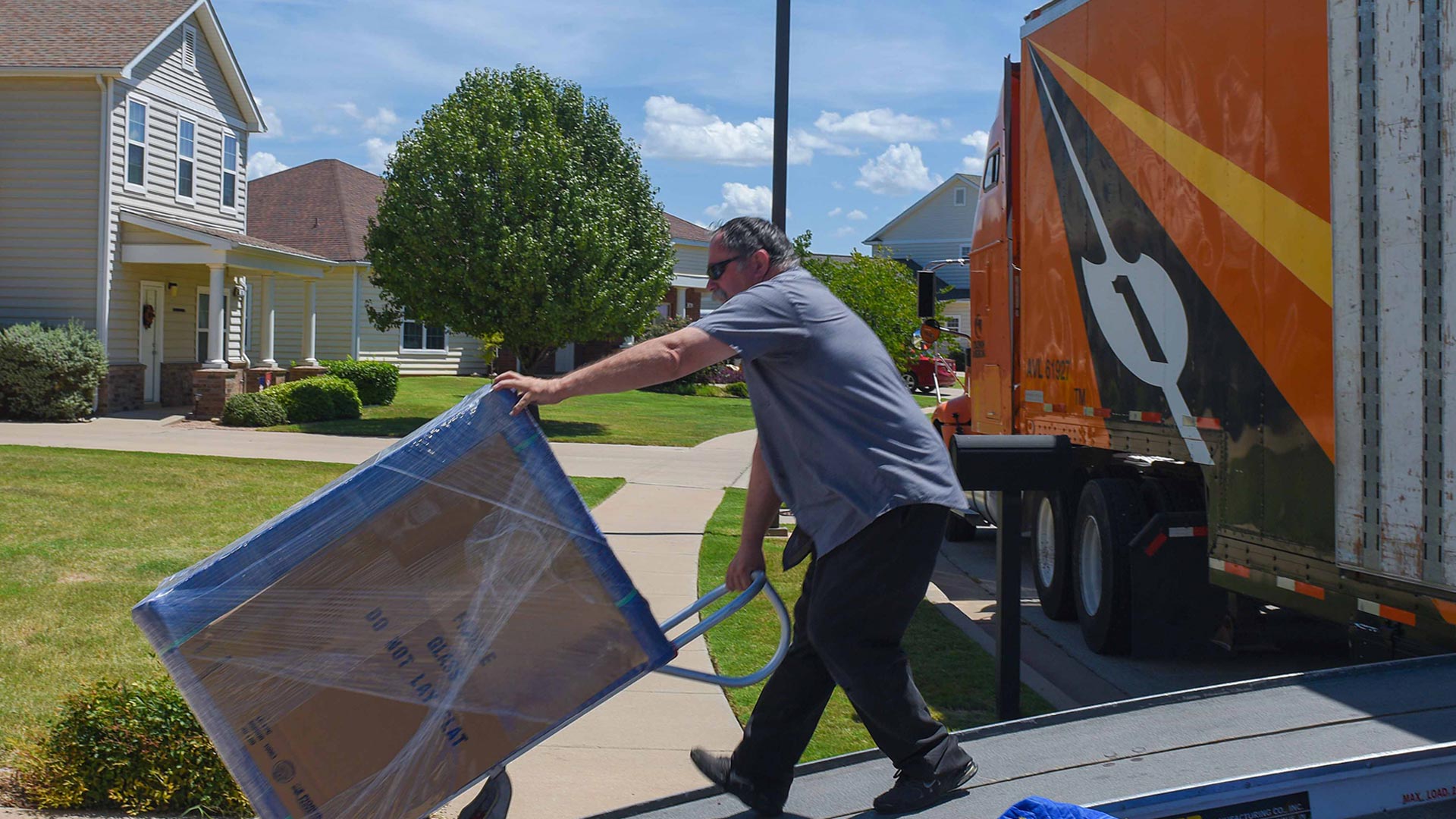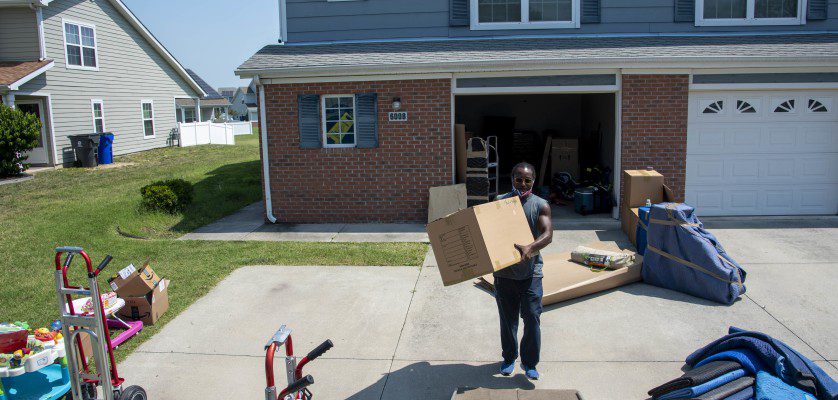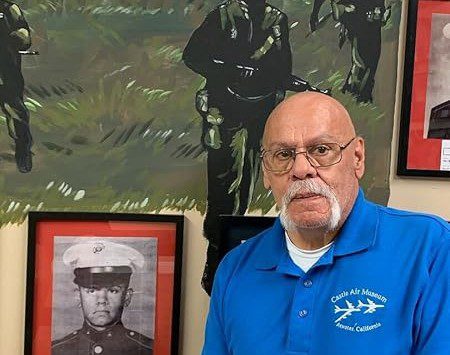You’ve got your orders in hand, and you are excited about your new assignment.
But as you look around your living space, you start to wonder — what am I going to do with all this stuff?
Whether PCSing from one stateside base to another, or from stateside to an overseas location, there are multiple options available.
You may first want to consider downsizing — a PCS move is the perfect opportunity to sort through your possessions and decide what to keep, what to donate and what to throw away. For more on downsizing, click here.
The government will pay to move your household goods, your unaccompanied baggage, your professional gear, and privately owned vehicle (see related article on Page 20) to your new duty assignment.
However, the amount of household goods (by weight) you are allowed to ship is determined by The Joint Travel Regulations issued by the Defense Department. The weight allowance will vary depending on rank and whether you are single or have dependents.
More information is available at the Transportation Management Office or by visiting www.militaryonesource.mil.
 Household Goods
Household Goods
Household goods are all the things you will need to set up home at your new duty station and are typically shipped by moving companies under contract to DOD.
You will need to schedule an inspection so the company representative can estimate the total weight of your household goods and submit and estimate to the government.
Once this is done, you will also need to schedule a pick-up date — when PCS out; and once you arrive at your new assignment, a delivery date.
- Items that you need to do your job, such as your professional books, papers, and equipment, do not count against the weight limit for your household goods shipment. Make sure you separate those items from the rest of your belongings, and clearly mark the boxes in which they are contained.
- The service member may request that professional books, papers and equipment belonging to his or her spouse be shipped at government expense on a PCS move. If approved, the weight limit is not to exceed 500 pounds for your spouse’s belongings.
- Begin weighing your items to determine if the belongings you plan to move fall within the weight limit long before you are expected to move. Each room potentially has enough items to roughly equal 1,000 pounds.
- Don’t over pack. If you go over your allotted weight limit, you are responsible for paying the extra expenses incurred.
- Make sure to hand carry important documents like your orders, birth certificates, housing information, financial information, medication, phone charger, school or employment records, vehicle documentation or anything else that you or your family will need immediately. Do not pack these items with the rest of your belongings because they could get lost.
- Make sure to include as “unaccompanied baggage” things that you will need right away such as seasonal clothes, kitchen items and baby equipment.
- On packing day, make sure to set aside any important items you need to keep with you, such as car keys, important documents, etc. Put those items somewhere the movers do not have access to, such as your car, or a closet clearly marked as “Do Not Pack.”
- Household goods shipments can take weeks to months to be delivered, so be prepared to wait for your stuff. If you arrive at your destination before your belongings do, you can usually borrow basic items like pots and pans, utensils, coffee makers, etc. from the Airmen’s Attic loan closet. Services vary by installation, and some installations put rank restrictions on who can use the program.
Unaccompanied Baggage
Unaccompanied baggage, commonly called ‘hold baggage,’ consists of items you will need to set-up home immediately upon arrive. Household goods can sometimes takes weeks or several months to arrive at your new assignment, so it is essential you plan ahead for what you will include in your unaccompanied baggage.
The term ‘hold baggage’ is actually throwback to the time when most military moves were by ship, and what is now considered unaccompanied baggage would be stowed below decks.
What to hand carry?
To help you get settled in as smoothly as possible after your move, important items should be carried with you for safe keeping and easy access. From important documents to items you need when you arrive, here’s what to keep close.
Important documents
The most important items to keep with you during a PCS are your vital documents. Check off each item in this list and make multiple copies, as appropriate. Electronic copies can be convenient, but make sure to have physical copies as well.
- Orders — Keep your original set of orders with you at all times and make more than one copy.
- Identification for each family member — Bring your military IDs and driver’s licenses, but also Social Security cards, passports and birth, marriage and naturalization certificates.
- Vehicle documentation — Carry your vehicle title or lease information and proof of vehicle inspection, registration and insurance.
- Financial information — Bring personal checks, any hard copies of recent bank statements, and all credit and debit cards — even the ones from department stores you never use.
- Housing information — Carry the household inventory list your moving company provided, as well as lease or mortgage paperwork.
- Legal documents — Bring divorce or annulment paperwork from a previous marriage, wills, custody or adoption paperwork, and any active power of attorney documents.
- School or employment records — Carry all transcripts, report cards or grade sheets your children may need for school registration. If your child has an individualized education program, or IEP, it’s important to carry this with you. If you are moving with a child with special needs, learn more about support provided by the Exceptional Family Member Program.
- Medical and physician information — Previous medical and dental records and vaccination records will likely be needed for school registration and for some employment, as well as prescription medications.
Essentials for your trip, and first nights in your new home
Because moving delivery delays can happen, it’s a good idea to carry essential items with you. Some items to consider carrying with you are:
- Medication for each family member — Prescription medications for each family member should be close at hand. You might want to bring some headache meds for you, too, in case of a sibling screaming match on the way there.
- Phones and chargers — Surviving without your smartphone and charger today is almost inconceivable.
- Valuables — If you can’t imagine living without a family heirloom or treasured item, carry it with you for safe-keeping.
- Home items — If you are doing a stateside PCS and you have your vehicle with you, pack a box with items you are going to need as soon as you arrive at your new house: toilet paper, paper towels, hand soap, cleaners, toilet brush, broom, mop, drinks, snacks, diapers, paper plates, etc. Then pack an extra bag with sheets, towels and an air mattress. Even if your belongings are scheduled to arrive “door-to-door,” it’s a good idea to plan for an extra day or two without your things because moving delays happen, especially in summer.
Unaccompanied baggage is typically picked up several weeks ahead of your household goods pickup.
When arriving at your new duty station and before your household goods are delivered, you may find there are items you need. Check out the Airmen’s Attic at your new duty station.
One tip I learned when I was on active duty, is that I would designate one room in my home and put all the items I wanted to include in unaccompanied baggage in one room. That way, when the packers arrived, I could direct them to the room and say ‘everything goes.’
Similarly, when it was time for my household goods to be picked up, I would pre-pack the suitcases I planned on traveling with — and lock them in the bathroom. That was to make sure essential items like uniforms didn’t get packed up with my household goods.
Firearms
While you are allowed to ship firearms in your household goods shipment during a stateside move, they must comply with all local and state laws. If moving overseas, you must abide by the laws of the host country. For more information, contact your local Transportation Management Office. Effective May 2, 2022, the Joint Travel Regulations will allow service members to ship empty gun safes, not to exceed 500 pounds, in addition to a service member’s prescribed Household Goods weight allowance to their next permanent duty station, which includes the home of record or home of selection, upon leaving the Service.
 Professional books, papers and equipment, or Pro-Gear
Professional books, papers and equipment, or Pro-Gear
Pro-gear can include books or military reference materials; professional tools for your job, including instruments; specialized clothing; military communication equipment; individually owned or issued gear; or clothing.
Service members can move up to 2,000 pounds of professional gear, and spouses can move up to 500 pounds of professional gear.
Privately Owned Vehicles
Depending on where you are PCSing to, and how long your new assignment will last, you may be eligible to ship a privately owned vehicle. For more information on shipping a vehicle, click here.
Traveling with your four-legged family members
There are a lot of things to consider when PCSing with your four-legged family members. For options and more information, click here.
Personally procured moves for do-it-yourself movers
If you prefer to organize your move yourself, you may be able to choose a personally procured move, or PPM. You are eligible for a PPM when you have PCS orders, a temporary duty assignment, or face separation, retirement or assignment to, from or between government quarters.
During a PPM, you coordinate the move of your household goods yourself without using any military moving services. This means that you are responsible for all the planning and communications that a military-coordinated move usually handles. Doing it all yourself can mean added stress and possible problems.
But military moves don’t have to be exclusively one or the other. You can use some military moving services and manage other parts of the move yourself. For more information, contact your local transportation office or ask a Military OneSource moving expert.
Whether this is your first PCS or you’re a seasoned professional, let Military OneSource help you master your move so you can get on with your mission.
Damages
Sometimes your Household Goods, Unaccompanied Baggage or Vehicle may be damaged in transit. For information on filing a claim, click here.











